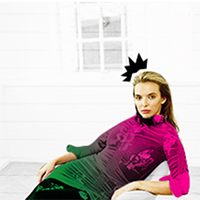Dame Emma Thompson, Claire Foy and Florence Pugh are among the actresses who will lend their voices to new Jane Austen audiobooks. Gugu Mbatha-Raw and Billie Piper will also take part in The Jane Austen Collection for Audible, featuring six of the author’s best-loved novels. Each story will be a hybrid of narration and full cast dramatisation. The Morning Show star Mbatha-Raw will narrate Sense And Sensibility, about the Dashwood sisters and their pursuit of happiness. Foy will read Pride And Prejudice, telling the story of the Bennet family and their five unmarried daughters as they seeks to make advantageous matches. [Source]
August 28 is a monumental day in Black history. I made a film about it for the Smithsonian a few years back with some friends. It chronicles the six stunning historical moments that all occurred on August 28 in various years. That film airs tonight on @OWNTV. #August28 pic.twitter.com/3nds4TJulQ
— Ava DuVernay (@ava) August 28, 2020
I’ve updated the gallery with high quality screencaptures of Gugu in her newest movie Summerland. The movie is available on VOD in the US & other selected countries and will be available in the UK in August.
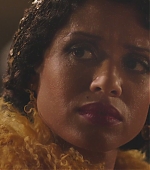
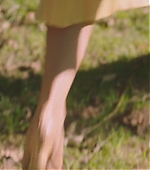
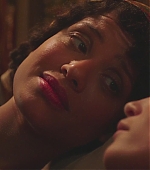
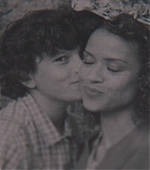




Since her breakthrough role in 2013’s Belle, Gugu Mbatha-Raw has made a career out of playing forward-thinking and boundary-breaking characters. As a mixed-race woman unwilling to conform to the aristocracy in 18th-century England, the British actress brought tenderness and toughness to the role, qualities she has carried through to other performances, such as the troubled pop star she played in 2014’s Beyond the Lights and the outgoing party girl Kelly in Black Mirror’s beloved episode “San Junipero.” In her latest role, as Vera in Jessica Swale’s Summerland, Mbatha-Raw takes on yet another period drama, exploring the limits of love and relationships during World War II. As she tells her friend and “San Junipero” co-star Mackenzie Davis, portraying well-rounded, multifaceted romantic characters—most of whom occupy spaces they weren’t created for them—is inherently radical, but also necessary. Below, the two actors discuss the lasting impact of their cinematic love story, traveling back in time to bring women forward, and the annoying task of explaining why they’re drawn to strong, political, rebellious parts.
———
MACKENZIE DAVIS: Hi, how are you doing?
GUGU MBATHA-RAW: Oh my god! I’m good, how are you?
DAVIS: I’m good. Are you still in L.A.?
MBATHA-RAW: I’m still in L..A. Where are you?
DAVID: I’m in Canada.
MBATHA-RAW: I mean it’s such a strange time, isn’t it? I may see if I can pop home at some point, too. I just think being home in a pandemic, being in your home culture, is soul-nourishing. We’ll see, watch this space.
DAVIS: I had such a nice day yesterday. I did a Gugu double feature. I watched Summerland and followed it with Belle.
MBATHA-RAW: You’ve basically been in England for a whole day. You just went historically down the rabbit hole.
DAVIS: It was a nice historical and geographical spread of the English countryside and London in WWII.
MBATHA-RAW: Thank you, friend, for committing to that much screen time with me.
DAVIS: I kind of struggle to watch my friends work sometimes. If I know them, I don’t rush out to see their work. It’s nice to have a reason, because I love you and I admire you and the choices you make. Do you have that at all with other actors?
MBATHA-RAW: I love seeing things in the cinema. I’m not so good at watching whole TV shows. I usually just watch the finale. Like, “It’s great—I’ve got the gist.” If my friends are on long-running things, I’m not great at keeping up. I trust that they are doing amazing work.
DAVIS: I feel the same way. First of all, I hate it when someone interviews me—I bristle at the psychoanalysis that goes into finding patterns in my work. I don’t know why I do things. But I think it’s interesting that you, and there are always exceptions to this, but in a lot of your work you play these very modern women who feel out of their time. You work a lot in period dramas and you often occupy this space of moving the conversation forward, either explicitly through demanding the conversation to be moved forward, or just existing in a space at a time when people would like you to apologize for being queer or female, or Black in an all-white, all-male space. I want to hear you talk about why you think modern Gugu time travels to bring women forward. [More at Source]

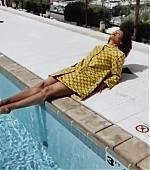

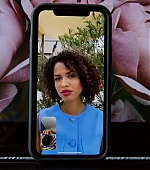
Friends Gugu Mbatha-Raw MBE and Amma Asante MBE first worked together on the acclaimed and multi-award-winning, 2013 period drama film Belle, which Asante directed and Mbatha-Raw starred in as Dido Elizabeth Belle. Dubbed Britain’s ‘first Black aristocrat’, Belle was the mixed race, illegitimate daughter of a naval officer, Sir John Lindsay, and an enslaved African woman named Maria Bell. In 1772, Belle’s great-uncle, Lord Mansfield, in his capacity as Lord Chief Justice, ruled that slavery had no precedent in common law in England. The film’s themes feel particularly pertinent in this politically charged climate, which saw a statue of 17th-century slave trader, Edward Colston, toppled in Bristol at the height of the Black Lives Matter protests in the UK.
Since then, Mbatha-Raw has forged a critically lauded career built on championing strong, Black female narratives. She starred in the first-ever $100m film to be helmed by an African-American woman, Ava DuVernay’s Wrinkle In Time in 2018. She also portrayed the first Black Miss World – Jennifer Hosten, ‘Miss Grenada’ – in Misbehaviour, and received much awards attention for the Apple TV+ hit, The Morning Show. Now, Mbatha-Raw is set to release World War II movie Summerland by Olivier Award-winning playwright, Jessica Swale, as well as the Marvel series Loki, alongside Tom Hiddleston.
Although other upcoming projects may have taken a hiatus due to COVID-19, Mbatha-Raw has been spending her enforced period of inactivity avidly supporting the Black Lives Matter movement. Via the Instagram-based venture, Still We Rise, she has been auctioning her own artworks of two African Americans who tragically lost their lives to police violence, George Floyd and Breonna Taylor. Proceeds go to charities that support social justice, including Black Lives Matter, Equal Justice Initiative, Movement for Black Lives and the Bail Project.
Ahead of the release of Summerland, the Black British powerhouses – Mbatha-Raw in LA and Asante in Denmark – caught up during the last few days of lockdown. Their frank and personal conversation encompasses protests, Britain’s past and, at this very necessary junction, their prescient hopes for the future.
Gugu Mbatha-Raw: ‘When I saw the statue of Edward Colston being pulled down, I was thinking, “My gosh, if Belle was to come out now, would it be received in a different way?”’
Amma Asante: ‘I sincerely think it would be received in a way that it should have in the first place. The film was about love in so many ways, but it was actually also asking some very powerful questions about today. When I saw that statue being pulled down, I unfortunately couldn’t hide my excitement on social media. My delight was evident.’
GMR: ‘I don’t agree with the statues being glorified, obviously. But I also think that we can’t erase the past. I think you have to be able to know the scars of history to learn from it. If there hadn’t been a painting of Belle, then we wouldn’t have known about her.’
AA: ‘That was the evidence of who she was.’
GMR: ‘And we still need the evidence – we can’t erase all the negative, and then it just disappears and we forget what happened.’
AA: ‘I think we should put them where they belong, which is in museums. Once these relics are put in museums, then more nuanced conversations can occur. If you are Black, walking through your town centre and your four-year-old daughter says, “Who’s he? Why is he up there?”, how do you explain it?’
GMR: ‘There’s no context. I think that’s the thing about at least putting it in a museum.’
AA: ‘It’s so important to how we understand who we are. To own who we have been is the only way to truly be able to celebrate the things that are worth celebrating and change the things that weren’t. I hope that is where the conversations will land us.’ [More at Source]

 Partner Sites
Partner Sites
